Cargando...
Recursos educativos
-
Nivel educativo
-
Competencias
-
Tipología
-
Idioma
-
Tipo de medio
-
Tipo de actividad
-
Destinatarios
-
Tipo de audiencia
-
Creador
-

Quick revision
EduBook Organización
- 1682 visitas
Sheep farming was the most important economic activity in 15th century Castile. Majorats prohibited the sale of land and ensured it stayed in the hands of the privileged class. Ferdinand II made changes…
-
Final self-evaluation 07 - Prehistory
EduBook Organización
- 1071 visitas
Indicate whether the following activities only took place in the Palaeolithic period, in the Neolithic period, or in both periods: making clothes ➝ making pottery containers ➝ growing cereals ➝…
-
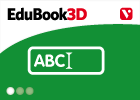
Complete. Livestock farming in Spain
EduBook Organización
- 2804 visitas
Complete this text with the correct words: farms – North – cattle – main – milk – meat – pig – eggs – Sheep – dry There are three types of livestock farming in Spain. farming is the…
-
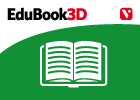
Livestock farming
EduBook Organización
- 2827 visitas
What is livestock farming? Livestock farming involves breeding, looking after and selling animals. We get food from livestock farming, like meat and milk, and other products like leather. The main types…
-
True/false. Economic and social development in the Crown of Castile
EduBook Organización
- 3969 visitas
Are the following statements true or false?: Most of the population of Castile was involved in agriculture, although sheep farming was also very important. The wool trade was concentrated in Madrid.…
-

-
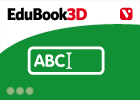
Final self-evaluation 7.06 - Absolute Monarchy: The Catholic Monarchs
EduBook Organización
- 3359 visitas
Complete these sentences about the economic and social organisation of Castile and Aragon: The Castilian economy was dominated by raising and the trade. In Castile, the monarchy strongly supported the ,…
-
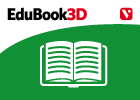
Pre-Roman times: the Celts
EduBook Organización
- 3005 visitas
The Celts were a tribe from central Europe. They migrated to the northern and central part of the Iberian Peninsula in about 1000 BC. The Celts lived in circular walled villages called forts. They built…
-
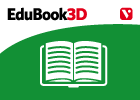
The Greek world: the poleis
EduBook Organización
- 2891 visitas
1.1. One civilisation Ancient Greeks worked in agriculture (olives, vineyards and wheat), livestock farming (goats and sheep) and fishing. They traded throughout the Mediterranean. Greece was…
-
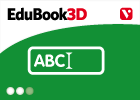
Correct. The economies of Castile and Aragon
EduBook Organización
- 2489 visitas
Rewrite these sentences and correct the mistakes: During the reign of the Catholic Monarchs, the Castilian economy was dominated by agriculture and the wheat trade. The monarchy strongly supported the…
Te estamos redirigiendo a la ficha del libro...













